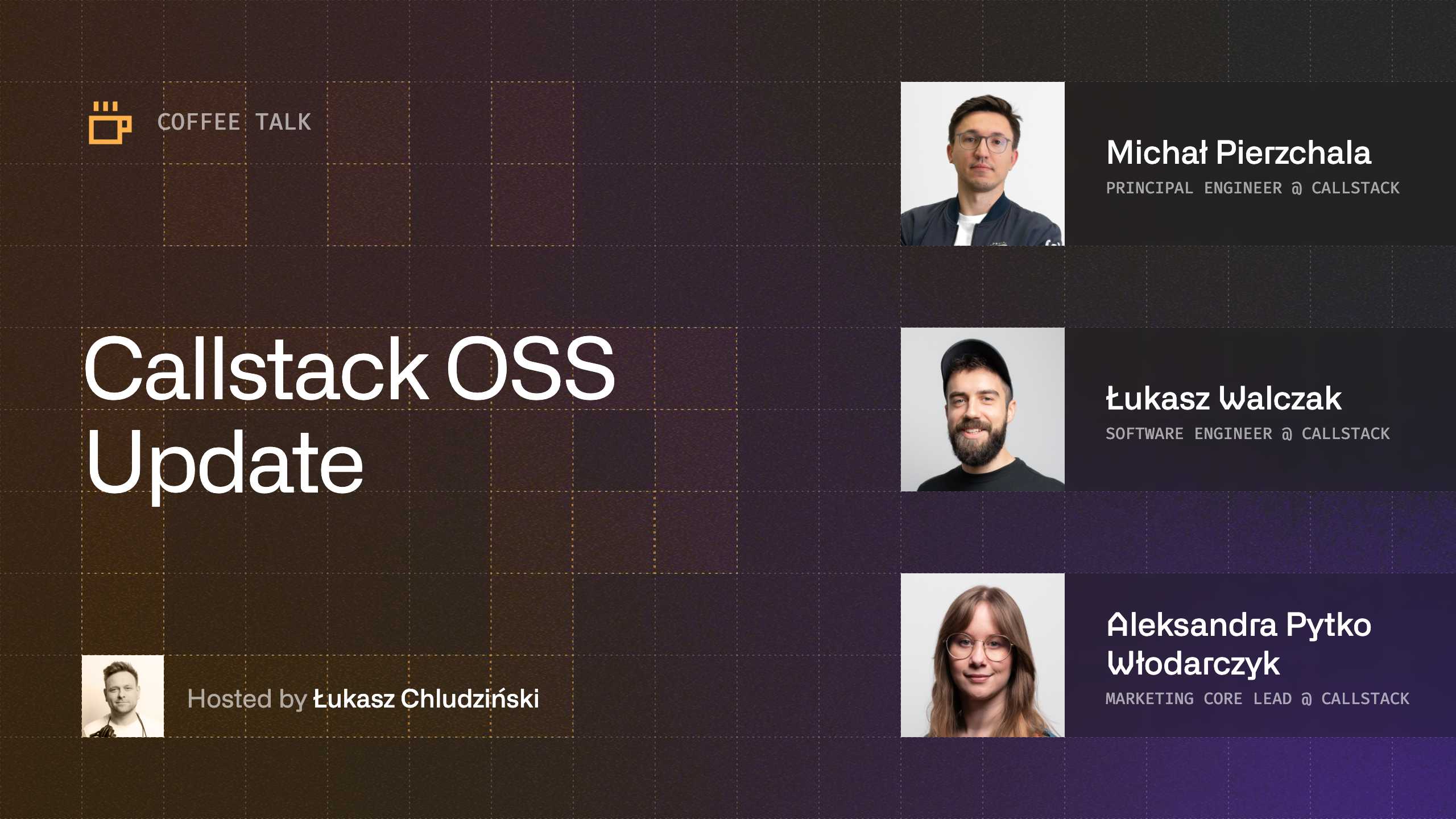As the content of this episode revolves around Open Source, we begin by explaining how Callstack pays it forward to the community with involvement in OSS projects.
Then, we move on to the first topic: RFC for the proposal for natively supporting Expo Config Plugins by React Native core. This proposal has been released as part of our R&D program. Check the GitHub discussion on Expo Config Plugins for more details.
We throw a spotlight on super apps and our approach to building them. We mention our freshly released super app development page, which includes a bunch of helpful technical & business resources.
Moving on, we talk about the latest updates to Re.Pack, including deal-breaking code signing and remote assets. If you’d like to dive deep into these new features, register for Super app development made easy with Re.Pack” webinar held on May 9.
Last but not least, we have a segment on React Native Paper, where we discuss the latest developments and plans for future versions. We are currently on version 5 of RN Paper and version 3 of Material Design. Our ongoing work includes fixing bugs and extending our dynamic color schemes generator. We also share some spoilers for version 6 of RN Paper.
Enjoy the talk!
Learn more about Open Source
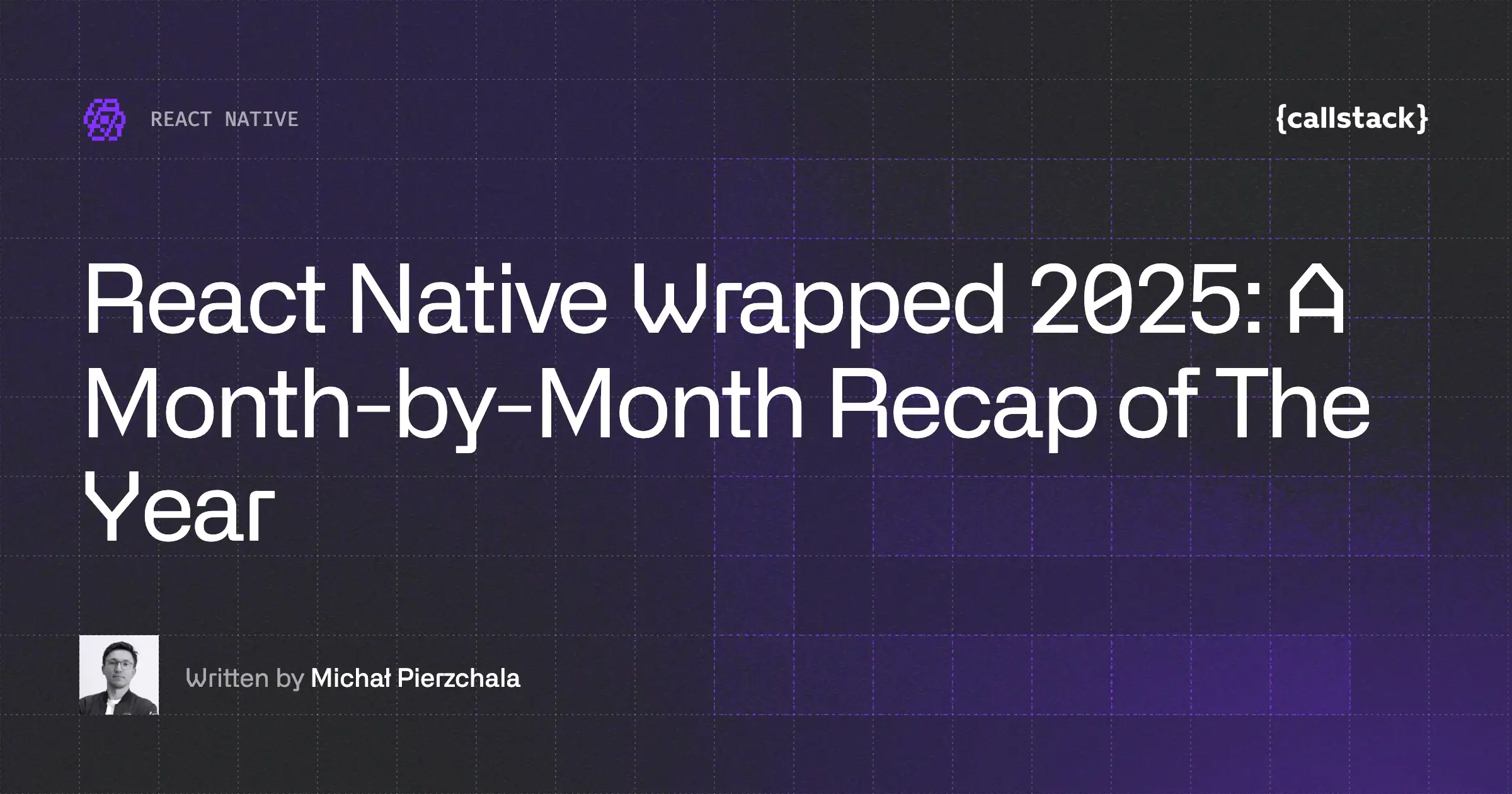
React Native Wrapped 2025: A Month-by-Month Recap of The Year
The first edition of React Native Wrapped looks back at the year RN turned 10 and the ecosystem doubled down on the New Architecture. It provides a month-by-month record of 2025, covering major framework releases, the Legacy Architecture freeze, React 19 integration, and notable developments across tooling, performance, styling, native modules, Expo, and platform adoption.
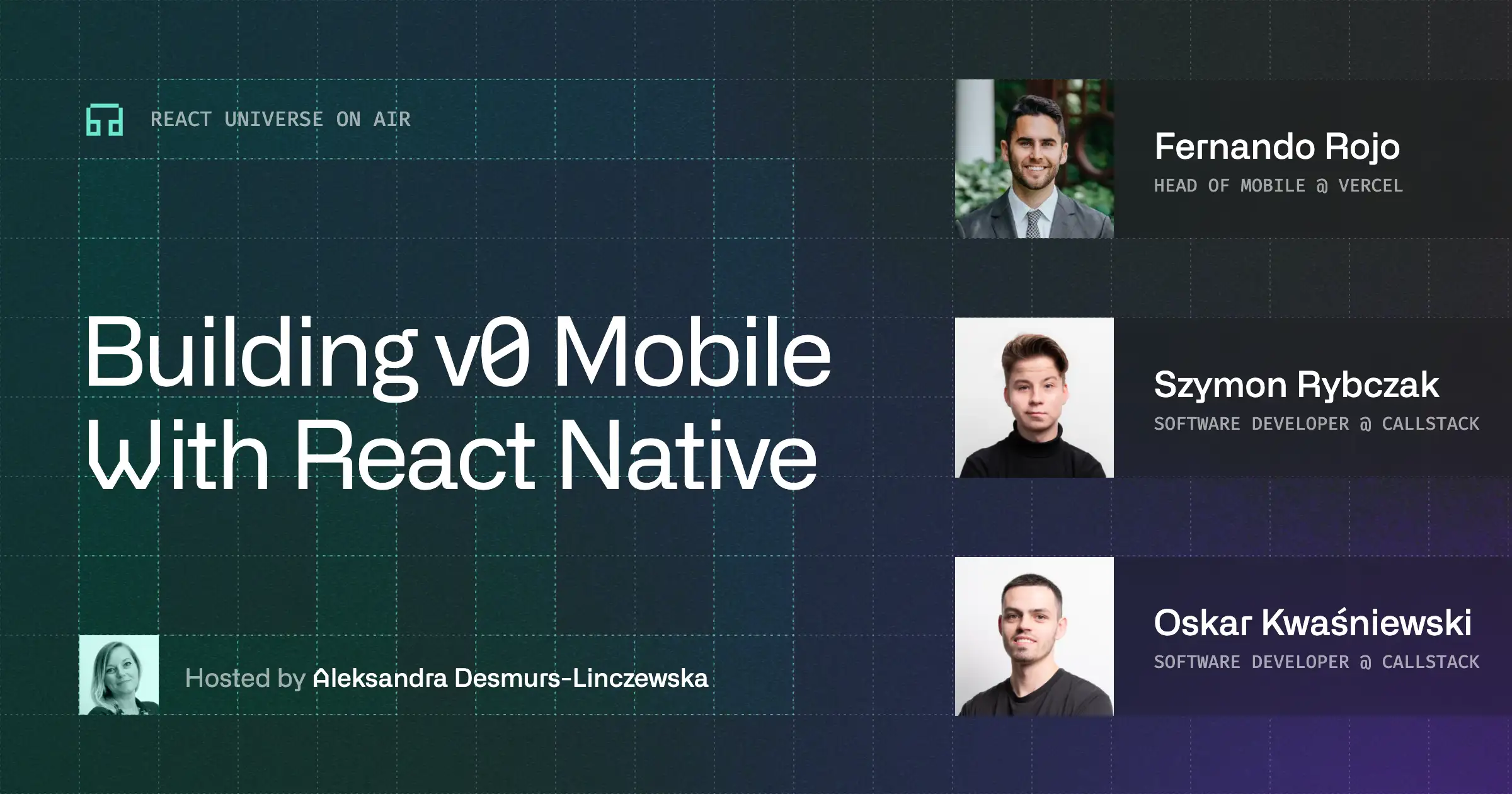
Building v0 iOS and Fixing React Native Along the Way
Lorem ipsum dolor sit amet, consectetur adipiscing elit. Suspendisse varius enim in eros elementum tristique. Duis cursus, mi quis viverra ornare, eros dolor interdum nulla, ut commodo diam libero vitae erat. Aenean faucibus nibh et justo cursus id rutrum lorem imperdiet. Nunc ut sem vitae risus tristique posuere.
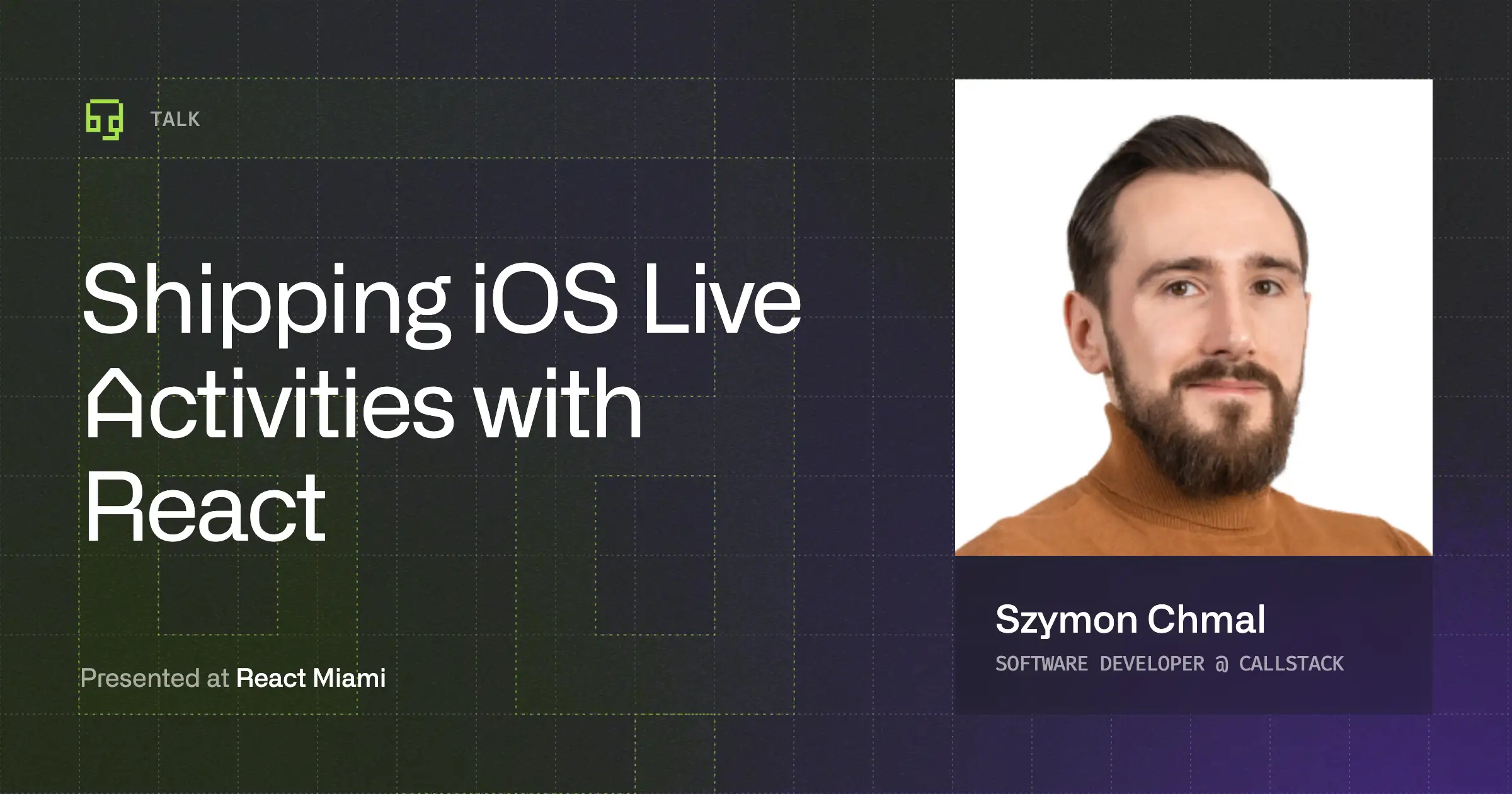
Shipping iOS Live Activities with React: The Voltra Story
Lorem ipsum dolor sit amet, consectetur adipiscing elit. Suspendisse varius enim in eros elementum tristique. Duis cursus, mi quis viverra ornare, eros dolor interdum nulla, ut commodo diam libero vitae erat. Aenean faucibus nibh et justo cursus id rutrum lorem imperdiet. Nunc ut sem vitae risus tristique posuere.
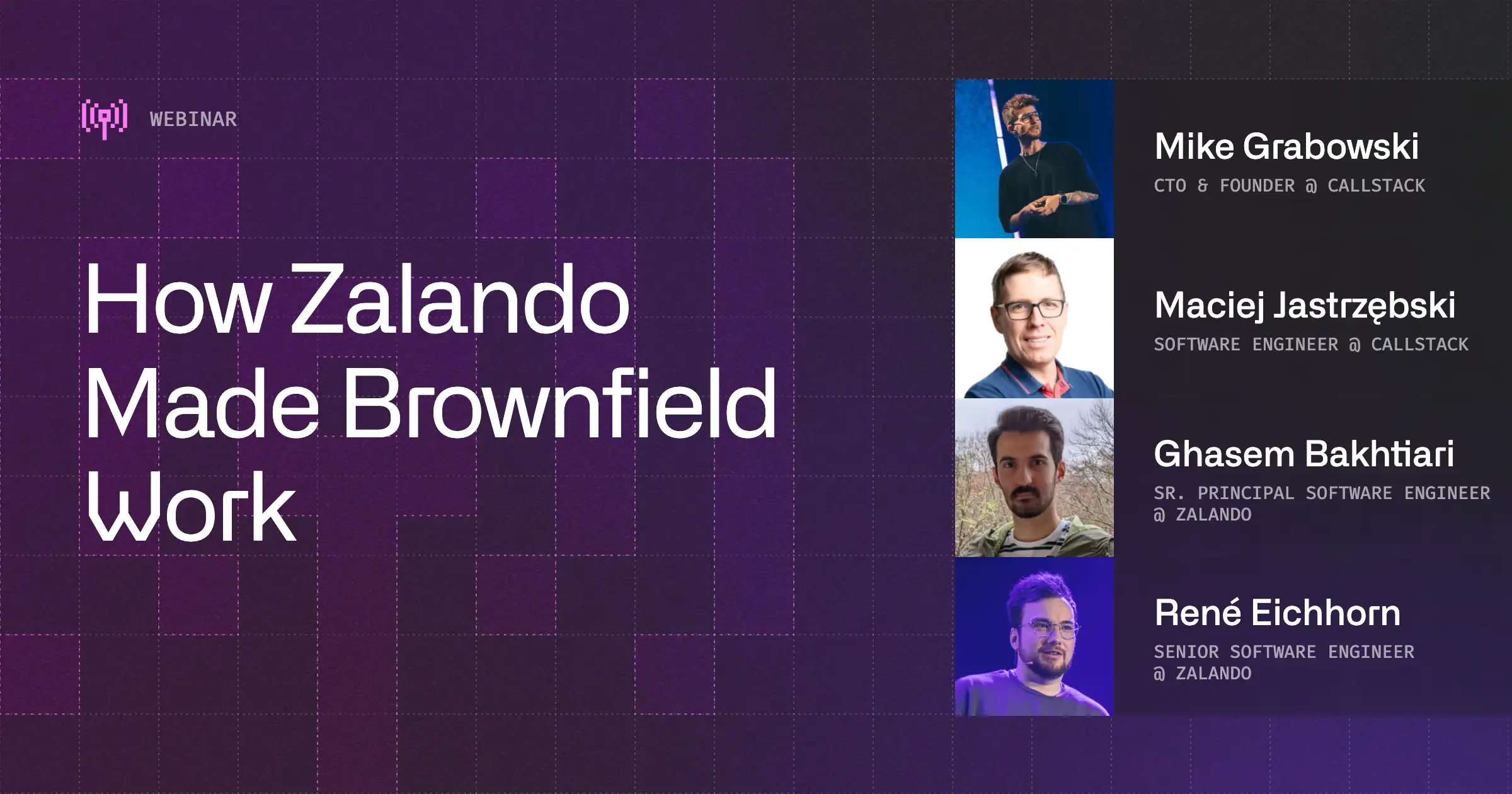
Scaling React Native at Zalando: How Brownfield Migration Paid Off
Lorem ipsum dolor sit amet, consectetur adipiscing elit. Suspendisse varius enim in eros elementum tristique. Duis cursus, mi quis viverra ornare, eros dolor interdum nulla, ut commodo diam libero vitae erat. Aenean faucibus nibh et justo cursus id rutrum lorem imperdiet. Nunc ut sem vitae risus tristique posuere.
